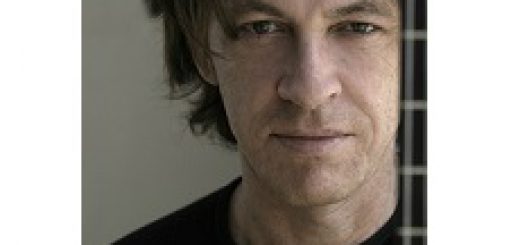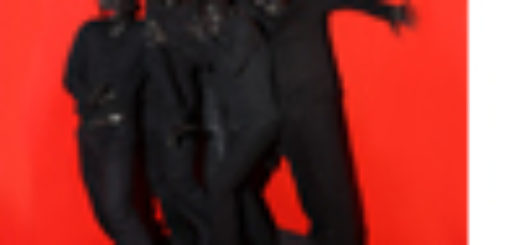Interview with Polish comedy group Ani mru mru
They don’t need any introduction to Polish audiences. They are very popular and well known by people aged from 4 to 104 years old. They have great experience, perform a lot and are extremely busy. However, they have found time to share their thoughts and views of life on stage.
How did you come across the idea of a cabaret act?
Marcin: The idea hit us when Michał and I realized that we both subconsciously had always longed for acting onstage. For we felt a need to fool around in front of people and share our joy with them, we thought that cabaret was the best way. We were giving little performances for our friends, then for some bigger audiences, and here we are. Unfortunately.
To what extend do you find your skills achieved during your education helpful in your present job?
Michał: 100% (laugh).
Marcin: As far as I am concerned, I’ve been using my skills in some pieces – once I was carrying Michał in my arms, another time I almost did the splits. Oh, once I also used a whistle (laugh).
Marcin: As much as I can, but it’s not me to judge. I engage the whole physiology of my body, because that’s what my role is based on. I can’t tell in which sketch I use it and in which I don’t. It’s simply like that. It just happens automatically.
How did your cabaret get to Hades? I mean that one in Lublin…
Michał: Oh my God, are we already in Hades?! Marcin: We got there because it was the only friendly place in which we could give a performance and have some rehearsals. There weren’t many clubs or places of culture in Lublin at that time which could or would let us use a room. For example, Maria Curie-Skłodowska University refused, because neither of us had studied there.
Michał: Let’s put it differently. There were various places, but they all wanted sort of gratification from us. The authorities of Hades – which, you can tell it by its name, is an art café – said “yes.” We asked them, as people from the street, just out of the blue, to let us perform there. It was the first place for us to perform and rehearse.
Are you fond of that place?
Marcin: Yes. Sometimes we take part in the events that take place there. We often give our performances in Hades. We also participate in other people’s shows, for example those which are held in honour of the Lublin artists. Besides, we get along very well with the owners of Hades and all those people who are gathered around it.
Michał: The Boheme of Lublin sticks together.
At which point of your career are you now. Do you consider yourself as a matured cabaret act?
Marcin: Surely we are a hugely experienced group, we’ve been giving lots of performances for nearly 10 years and so our score is really impressive. Whereas, do we feel a mature group? Probably we do, but I’d like to say there’s still lot of to be done.
Michał: That’s why, on the other hand, the answer is: no. All artists need to bump into new ideas, discover new ways to follow, and it results in still various pieces coming into being onstage. Marcin: We constantly explore new paths and I hope there’s still the most intense period before us.
Do you still feel excited with your succeeding performances and trips?
Marcin: All the time.
Michał: Always before introducing a new piece onstage. Marcin: I even thought about visiting a therapist with that issue. For example, I play the same sketch for a two hundredth time and I still enjoy it. One usually performs then automatically, it’s natural. But the specific of cabaret is that every time we play in another place, in front of other audience. Every time there is a different atmosphere to it, which makes us never get bored.
Where do you get your inspiration for the artistic programmes from?
Marcin: I can’t tell you that. It’s a secret, I would have to kill you (laugh).
Michał, will you blow the gaff. What does inspire you?
Michał: Because Marcin said so, I can’t tell you either (laugh).
Marcin: It’s obvious – from our heads, from everyday life. From observing reality. Of course we notice various aspects of life and then it’s our job to comment on them and emphasize them. It’s not funny when a man comes to a doctor, but when, for example a stutterer comes to a doctor, then you can build a story around it.
What is your own favourite sketch and why?
Michał: The youngest children are the most loved, therefore each new piece, which is created and developed onstage gives us the most possible pleasure.
Isn’t it the way that the most sentimental to you is your ‘first time’?
Michał: It is like that too. I still like to play “Little Red Ridding Hood”. Among the new ones, I like performing ‘The Clairvoyant.’ Although, there’s still a newer one – ‘The clinic of Addictions.’
Marcin: My attitude towards it changes. For the time being, I like to play ‘Binoculars about the rescuers’. But it’s not black or white; I like to play or I don’t. it’s known that the newest pieces are fresh and they give the opportunity to manoeuvre and improvise, to adding and improving, and it makes one awaits for that sketch. I come out to the stage and sometimes need to work it out – “I’ll add this or that” or “maybe I’ll do also this.”
How much do you improvise during your performances?
Marcin: Quite a lot, but only to some extend. It’s not that suddenly I stop sticking to the plan, and begin to act on my own and improvise. Usually its additional features, like facial expressions or words.
Michał: It’s a 70 to 30 ratio. We always stick to sort of a framework. But as Marcin has just said, when we perform a new piece, there’s always room for searching, adding, etc., it’s time to improvise. It’s a phase of verification – we can change things or add something according to the audience’s reaction.
Marcin: Especially when there’s a standstill in a sketch, or a moment when things don’t work. Potentially it’s a fine sketch, but we feel it lacks something.
How much do you practice before performances?
Marcin: We never do, for two main reasons. Frankly speaking, we don’t have time for that. Secondly, basing on our experience I feel certain that Michał knows me, I know Michał, add Waldek to it, we trust each other so much that when I tell Michał: “Go and please, act the clairvoyant”, he will go and act it. Obviously, we will be gradually changing a particular piece, we will be talking about it, but it’s not that we held fifteen rehearsals and then we show a sketch in public. Nothing like that. We’ve have an idea, write it down, learn it by heart, go on stage and show it.
Michał: We’re not the musicians to compose a good musical theme, play some phrases nicely, perform whatever we like and have the audience buying it. In our case the audience is necessary, because without them we will never know where the feedback is. It’s difficult to rehearse without the audience.
Marcin: We just don’t know if a particular piece will work. We assume it’s better to perform a raw sketch for a real audience, even introduce it as a premiere and tell them no one has ever seen it before, than to have a dry practice. Right after the first show we know which fragments are funny, also if they are the ones that we predicted to make the audience laugh, and which we find funny too. We know as well which parts need to be corrected.
What about “Tofik”? Are you bored with it or you still are fond of the sketch? It seems to be your most loved piece by the audience.
Marcin: Honestly speaking, I have never liked this one. Yes, actually it is funny, but there’s nothing valuable to it, apart from a ridiculous Tofik character. There’s nothing funny about it.
The audience loves it though. Maybe even more than you expected.
Marcin: We’re aware of that and probably it is just what actually happened.
Michał: “The Chinese Man” is an example of the sketch that overgrew our expectations. It’s a surprise for we added it in to a programme as a supplementary sketch when we had had to fill up the time in our schedule at the “Paka” festival in Cracow. There was something about 10 minutes to fill. And there was “The Chinese Man”. We had the text, tried it at my place to check if it fixed the time frame. So we took it. Later it appeared to be something completely different to what people got used to see.
Marcin: Going back to “Tofik”, it’s the biggest phenomenon to me that after ten years people still love it. It’s the sketch from our first programme and even today, in Leicester, the audience asked for it. It’s exceptional. But still we must go on and develop. It’s only The Rolling Stones who’s been playing ‘Satisfaction’ onstage for fifty years.
As you stated before, the history of “Ani Mru Mru” is rather short, but quite intensive. You have received lots of awards for artistic achievement. Which one makes you most proud?
Michał: It’s always the prize of the audience. The prizes we’ve been given so far, show we’re making for the right direction. But the real indicator is the audience prize. It always makes us sure that our work is worthwhile.
Marcin: To me, the most valuable prize is, for example, a full audience like here, in Leicester. It increases self esteem hellishly and makes us truly believe that people want to see us anyway and they enjoy it. Of course, it is also possible to prepare a programme, hit the road and hope people will come to see it. Once it will be 15 people, the other time seventy, still other there will be two hundred and fifty. So far, we’ve managed to fill the rooms full with audiences. Therefore, we consider people still coming to our shows as the prize for what we do.
And they still call for “Tofik.”
Michał: That’s right.
Which of your performances so far do you particularly remember and why?
Michał: It was our first concert organized annually by “Koń Polski” in Koszalin, but I can’t remember which year it was. I do remember that particular show because lots of cabarets we like and respect took part in it, for example “Kabaret Moralnego Niepokoju,” Marcin Daniec and many other recognized personalities of the cabaret scene. Piotr Bałtroczyk, who was conducting the concert, finally said: ‘And now, ladies and gentlemen, the cabaret “Ani Mru Mru” will perform right in front of you’. We were standing backstage and heard it all – it felt just like at a rock gig, one big “wow!” from the audience reached us. Man, it was so impressive! It’s sort of such an injection of pure energy that we perform not for 100%, but for 1800%.
Marcin: As for me, throughout those ten years, I can only recall the show in Leicester because my memory is so bad. I remember most of details from tonight performance (laugh). Tomorrow I may have a problem with that…
You perform In Poland and abroad. Where do you find the contact with the audience easier to establish. Does the place matter?
Michał: We never interact with the audience before any show, so we never know how they will react during the performances. When we go for a certain show, it doesn’t really matter if it is Poland or any other country, and whether we perform for fifty or three thousand people audience. We always perform the same and our attitude never alters.
Marcin: Though I think it can be sensed that the audience abroad waits for us a bit more, they also seem to be gladder to have us performing.
Don’t you think it’s because Poles in their own country are restrained by nature, but those who live abroad are more open so the contact is established faster?
Marcin: We have little experience with Poles abroad. Michał: It always works the same. We go abroad, go back to Poland and perform in a town where we haven’t been for, let’s say, two years. We’re talking about the same anticipation. Marcin: It shouldn’t be distinguished that way. We always perform the same in Kalisz, Florida or in Scotland.
Thank you for talking and have a nice stay in Leicester.





